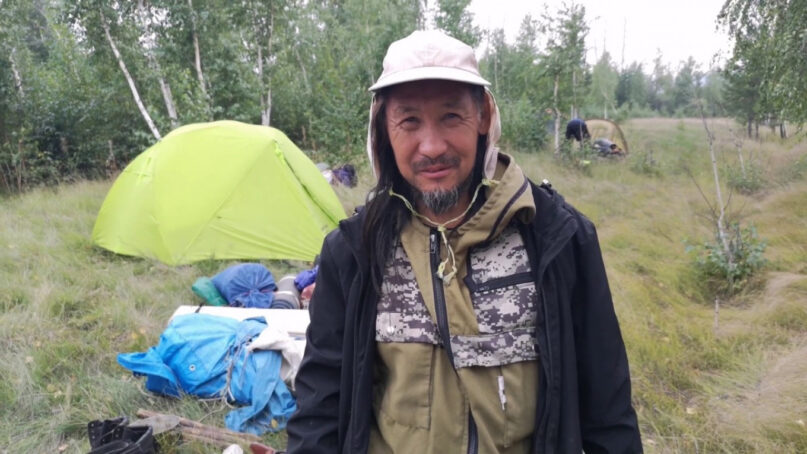(RNS) — Aleksandr Gabyshev, a member of Russia’s far eastern Yakut ethnic group and a practitioner of Siberian shamanism, has been indefinitely confined to a mental institution after losing an appeal in Russian courts in late September, Amnesty International has reported.
The sentence comes after Gabyshev’s repeated arrests for opposing Russian President Vladimir Putin, beginning with his attempt in 2019 to march from Yakutsk in eastern Siberia to Moscow, where, he claimed, he would use his self-proclaimed shamanic powers to “purge” Putin from power.
According to Radio Free Europe, during a rally that drew hundreds in Chita, near the Mongolian border, Gabyshev claimed that “God told me that Putin is not human but a demon and has ordered me to drive him out.”
After a march of nearly 2,000 miles, a third of the way to his goal, Gabyshev was arrested by Russian state police.
RELATED: Persecution of Jehovah’s Witnesses in Russia intensifies and targets children
After being confined to a mental institution for several months and released, he was arrested again by Russian authorities in May 2020 after posting a video of himself performing a ceremonial shamanic drum dance with the declaration, “Very soon you all will break out to freedom.”
In January 2021, shortly after he announced another march on Moscow, 50 members of the state security services raided Gabyshev’s home in Yakutsk and once again sent him off to the mental hospital.
According to Amnesty international, the authorities claim he ripped the uniform of and lightly injured one of the officers with a ceremonial Yakut sword known as a batas. Gabyshev has been officially charged with making “calls for extremism” and “using violence against police officers.”
Shamanism is an overarching term used to refer to a broad range of Indigenous spiritual practices by many ethnic groups in Russia’s far east, from non-Islamic Turkic peoples, including Yakuts like Gabyshev, to Tunguskic tribes and Yupiks, who range from eastern Siberia across the Bering Strait to Alaska.
Over the years, shamanism was eroded by the czar’s Russian Orthodox Church as the Russian Empire extended eastward, and under Soviet rule shamanism came into conflict with Marxist secularism. While Siberian shamanism was still considered a living religion in the early 20th century, by the 1960s shamans were few and far between.
However, the religion has been seeing a resurgence since the fall of the Soviet Union in 1991, with many in Russia’s far east returning to the traditions of their roots, which for centuries held shamans to be important healers and spiritual leaders.
A 2002 census found that more than 123,000 people from Siberian ethnic groups listed traditional beliefs, which include many forms of shamanism, as their religion.
In response to Gabyshev’s repeated detentions and involuntary treatments, his lawyers filed a complaint with the European Court of Human Rights in 2020, and his cause has been taken up by groups such as Amnesty International.
“Aleksandr Gabyshev has become a symbol of grassroots resistance to the increasingly repressive government of Vladimir Putin, so it is not surprising that the authorities went to such extreme lengths to silence him and smear his name,” the group said in a statement. “Once again, the authorities are using ‘psychiatric care’ as a punishment — a method tried and tested during Soviet times.”
The delegitimization of religious figures and especially minority leaders was common in the Soviet era. In a famous 1967 incident, Boris Kochubievsky, a Jew, was arrested by the KGB and taken to a mental institution in Kiev after sending a letter to then-Premier Leonid Brezhnev asking for permission to emigrate to Israel. Kochubievsky’s treatment helped galvanize the refusenik movement in the Soviet Union and the Soviet Jewry movement abroad.





